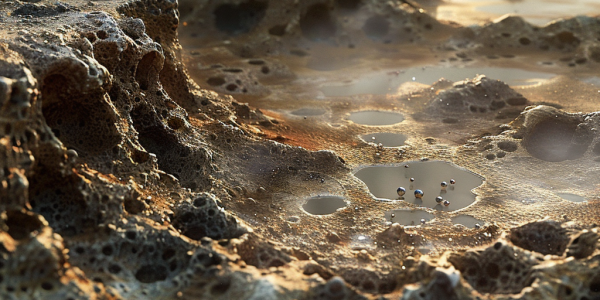New Geological Scenario Proposed for the Origins of Life on Earth
Recent research from Ludwig Maximilian University proposes a new geological scenario for the origins of life, focusing on RNA replication in unique volcanic island conditions. This study highlights how simple geological processes may have facilitated the emergence of life on early Earth, providing insights into the complex interplay between environmental factors and the development of genetic material.
Study Reveals Conditions for Life’s Origins on Earth and Beyond
A groundbreaking study published in eLife reveals that gas flow over water in early Earth environments may have facilitated nucleic acid replication, crucial for the emergence of life. The research highlights volcanic islands as potential cradles for life, suggesting simpler conditions for life’s origins and opening new possibilities for extraterrestrial life. Discover how this study reshapes our understanding of life’s beginnings and its potential beyond Earth.
New Digital DNA Melting Analysis Method Revolutionizes Pathogen Detection in Blood Samples
The University of California – San Diego has developed a new method, digital DNA melting analysis, that has the potential to revolutionize pathogen detection in blood samples. This method can produce results in under six hours, significantly faster than current standard methods, and has shown promise in reducing false positives. A pilot clinical study demonstrated the effectiveness of this method in detecting sepsis, providing faster detection and the additional benefit of quantifying the pathogen’s presence in samples. This breakthrough could have a profound impact on infection diagnosis and treatment, particularly in critical cases such as sepsis.



